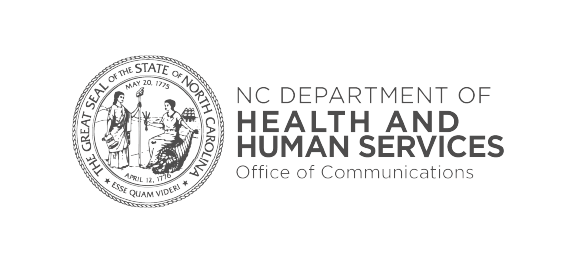What is Psychiatry?
Psychiatry is a field of medicine in which providers use medication to treat mental and behavioral health disorders when needed. Psychiatric care providers are licensed, medical professionals. Patients either see a medical doctor, an advanced nurse practitioner, or a physician assistant. At Apogee Behavioral Medicine, we empower patients to make their own decisions about their health. Our providers will not shame you into taking medication that you don’t want to take. Instead, they inform you about all your care options, including benefits and risks, and then support you in making a decision.
Psychiatry Compared to Psychology
Psychiatrists are trained medical doctors and can prescribe medications. They spend much of their time with patients on medication management as a course of treatment. Psychologists focus exclusively on psychotherapy and treating emotional and mental suffering in patients with behavioral intervention. Psychiatrists often recommend pairing medication management with therapy to create a more holistic treatment plan. A psychologist can help a child or adult to work through difficult situations, learn coping skills to manage strong feelings like anxiety and depression, and help families to communicate and get along better. What a psychologist cannot do is prescribe medication.
Why See a Psychiatrist?
Psychiatrists guide you and your care team through your path to wellness. Psychiatrists specialize in providing accurate diagnoses, medication management, and treatment guidance as the leader of your wellness team. Our providers treat a wide range of conditions from depression, anxiety, and bipolar disorder to substance use conditions and ADHD.
Our providers all practice using standardized, evidence-based treatments to meet all your wellness needs.
Our staff is well-equipped to support you along all aspects of your care.
We put you in the driver’s seat by offering ease of access to your team
You or your child might benefit from seeing a psychiatrist if:
- Have been in therapy for a while and are still struggling to manage their symptoms.
- Your child’s pediatrician, therapist, or another professional in their life has suggested that medication might be helpful.
- Struggle to complete ordinary tasks or to enjoy your daily life
- Marked changes in your personality
- Inability to cope with problems and daily activities
- Strange ideas or delusions
- Excessive anxiety
- Prolonged feelings of sadness
- Marked changes in eating or sleeping patterns
- Thinking or talking about suicide
- Extreme highs and lows
- Excessive anger or hostility toward others
- Irrational fears
Same-day Appointments
No more waiting! Immediate access to the behavioral healthcare you need.


Conditions We Treat
Mood disorders can bring repeated feelings of sadness or periods of feeling overly happy – or fluctuations between the two extremes. Common mood disorders include depression and bipolar disorder.
Psychotic disorders involve distorted awareness and thinking. Two of the most common symptoms of psychotic disorders are hallucinations and delusions. Schizophrenia is an example of a psychotic disorder.
Eating disorders can involve extreme emotions, attitudes, and behaviors involving weight and food. Anorexia nervosa, bulimia nervosa, and binge eating disorder are the most common eating disorders.
PTSD is a condition that can develop following a traumatic and/or terrifying event. People with PTSD often have lasting and frightening thoughts and memories of the event and tend to be emotionally numb. These psychiatric disorders develop during or after stressful or traumatic life events. Examples include post-traumatic stress disorder (PTSD) and acute stress disorder.
OCD is when people are troubled by constant thoughts or fears that cause them to perform certain rituals or routines. People with these disorders experience repeated and unwanted urges, thoughts, or images (obsessions) and feel driven to take repeated actions in response to them (compulsions). An example is a person with an unreasonable fear of germs who constantly wash their hands.
Telepsychiatry Now Available!
Online telepsychiatry is a secure and effective way to connect with therapists. In these sessions, patients talk with their providers through live video. Patients can log on to the calls from anywhere with a secure internet connection, and we recommend having plenty of privacy as well.
Insurances Accepted
















Call us at (855) 409-9002 to see if you are covered.
Insurance plans may vary by state and are subject to change.
What Our Patients Say
My experience with Apogee Behavioral Medicine has been amazing! The providers and office staff are so friendly and helpful and demonstrate a true sense of care. I appreciate that every time I call there is always a kind person on the other end of the phone. From scheduling, to my actual appointment with Dr. Ayers, they have made the entire process as straightforward and easy as possible. I prefer to be seen in-person, but travel for work so it’s comforting to know I have the option to book a virtual appointment, if needed. I’m so grateful for the compassion they have shown me and look forward to their guidance as I learn to manage my anxiety. I feel like I’ve finally found the support system I’ve been searching for.
I reached out to several psychiatry groups, some of which never even returned my call. Not only was I able to speak with an actual person, but she scheduled me for an appointment right away. Their office has a very calming feel and I was greeted with a smile and felt safe and welcomed at my appointment. I highly recommend Apogee Behavioral Medicine. They’re truly a wonderful group and their sincerity for patients dealing with mental health is at the forefront of this practice.
It was very easy to talk to the professionals there. They listened to everything I said and were very encouraging and supportive. I highly recommend Apogee Behavioral Medicine to anyone.
FAQs for Psychiatry
During your first visit with an ABM provider, we will discuss with you your history, what you have been experiencing, and prior treatments you may have tried. We will review and discuss findings from any standardized tests that might have been performed during the assessment and then discuss recommendations and options. Our providers act as guides so that you can make informed decisions for your own care.
There are many reasons to speak with a psychiatrist. For anyone struggling with changes in their mood, finding it difficult to focus at home or at work, and going through new life stressors, speaking with a psychiatrist can be very helpful.
Apogee strives to provide access to care that is evidence-based and convenient. Please speak to one of our patient care specialists if you are interested in weekend appointments.
You may self-schedule same-day appointments through our new appointment portal or by calling us at (855) 409-9002.
